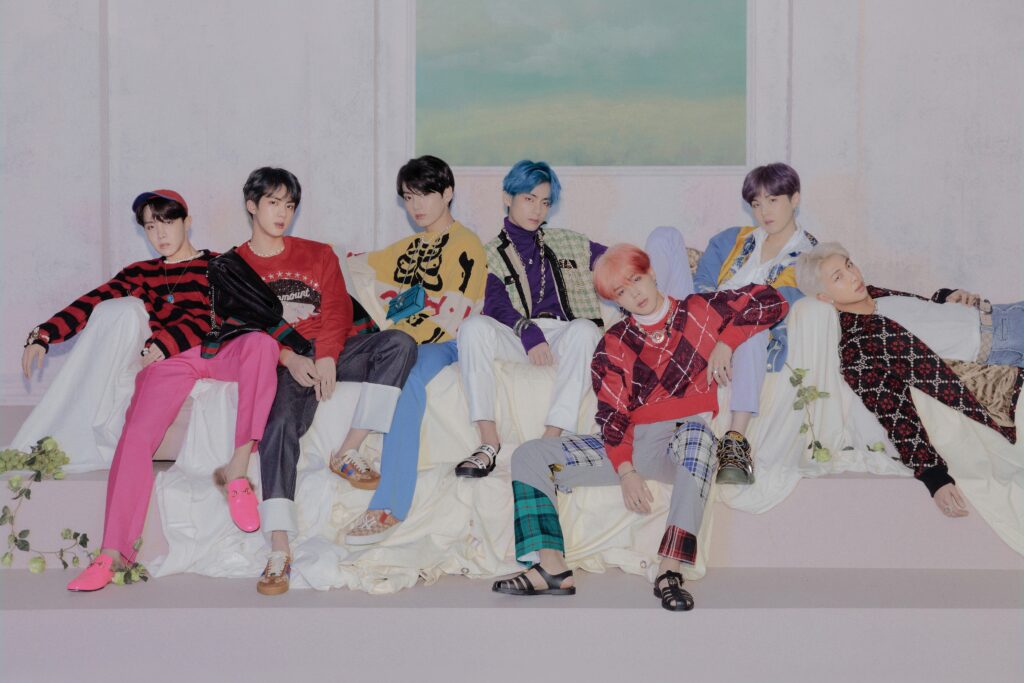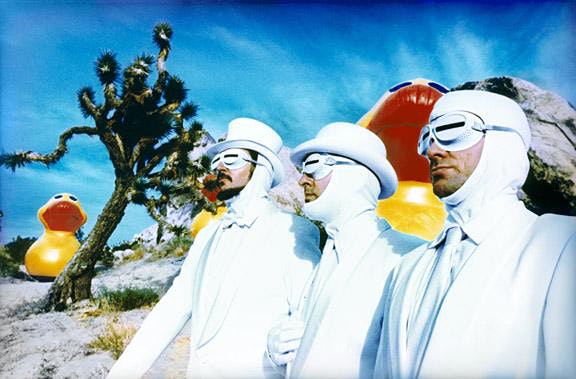Track-by-Track: Frank Ocean’s Channel ORANGE (2012)
Written by Julianna Smith on August 18, 2021
Are you ready to relive summer, love, and heartbreak with Frank Ocean’s channel ORANGE?
Frank Ocean’s 2012 album, channel ORANGE, captures the sickly sweet, tape-recorder nostalgia of summer so exquisitely that I’ve always wanted to do a track-by-track analysis. This album played a huge part in my summer, too.
![]()
I had good days–beach days, nights after work spent with friends, long days spent painting and listening to music–that I could feel turning into memories, all tinged with rose-gold optimism.
As daunting as going back to school may seem, listening to channel ORANGE is guaranteed to take you back to sunnier days.

Frank Ocean derives inspiration from a number of sources, and channel ORANGE shows that quite clearly. The album opens with “Start“, a 46-second instrumental piece with the sound of a powering-up Playstation, TV station switching, and muffled spoken words. The dreamlike track is reminiscent of playing video games or channel surfing in a busy home: an innocent moment likely drawn from Ocean’s own memories.
Up next comes “Thinkin Bout You“, the first single off channel ORANGE, and the song which helped Frank Ocean break into mainstream media. In this track, a lovesick Ocean laments how deeply he’s in love with his lover. He sings:
“No, I don’t like you, I just thought you were cool enough to kick it…Since you think I don’t love you, I just thought you were cute / That’s why I kissed you.”
Obviously, Ocean’s feelings run deep–and have both him and his lover conflicted. The track’s dreamy instrumentals fit perfectly with the regretful, but sweet, lyrics. It’s no surprise this beautiful song gained popularity so quickly.
“Thinkin Bout You” flows like a mournful sigh, like the feeling of being too committed too fast, unable to slow down.
![]()
The album’s pace abruptly shifts as we enter “Fertilizer“, a 39-second track which fades quickly in with sounds of a TV switching stations and other analog samples. Ocean briefly sings that he’ll “take bulls**t if that’s all you’ve got,” continuing the theme of a love that’s taking a toll on him. The defeated lyrics contrast the upbeat instrumentals of the song, a musical theme present throughout the album.
“Sierra Leone” is next, a song which takes a look back at Ocean’s teenage years, in which he got a girl pregnant. In this song, Ocean starts to unveil his higher, floaty vocals, expertly layering them with a brief rap verse.
By the end of the track, Ocean has gone from a teenager ecstatic about having a beautiful girlfriend to a father putting a baby in its cradle. He’s grown up faster than he meant to.

The pink skies of Sierra Leone, courtesy of Genius
Next up is “Sweet Life“. In my opinion, this song contains the lyric that encapsulates the spirit of the album:
“So why see the world, when you’ve got the beach? Don’t know why you’d see the world, when you got the beach, the sweet life.”
This lyric is written in a sarcastic tone–Ocean teases the subject of the song for their desire to ignore the rest of the world and just live on their beach. He paints a picture of them “catching that breeze ’til [they’re] dead in the grave”. Whoever the subject is, they might know that living stagnant isn’t healthy, but at the same time, it seems like it’s almost impossible for them to stop.
However, Ocean himself has this same mindset at times. Consider “Sierra Leone”–the song has an overall pretty depressing storyline, but it has the same upbeat tone as the majority of the album. Ocean struggles to view his past without a rose-colored lens.
This summarizes the core conflict of the album: Ocean’s reluctance to move past the golden-tint of nostalgia and into the real world.
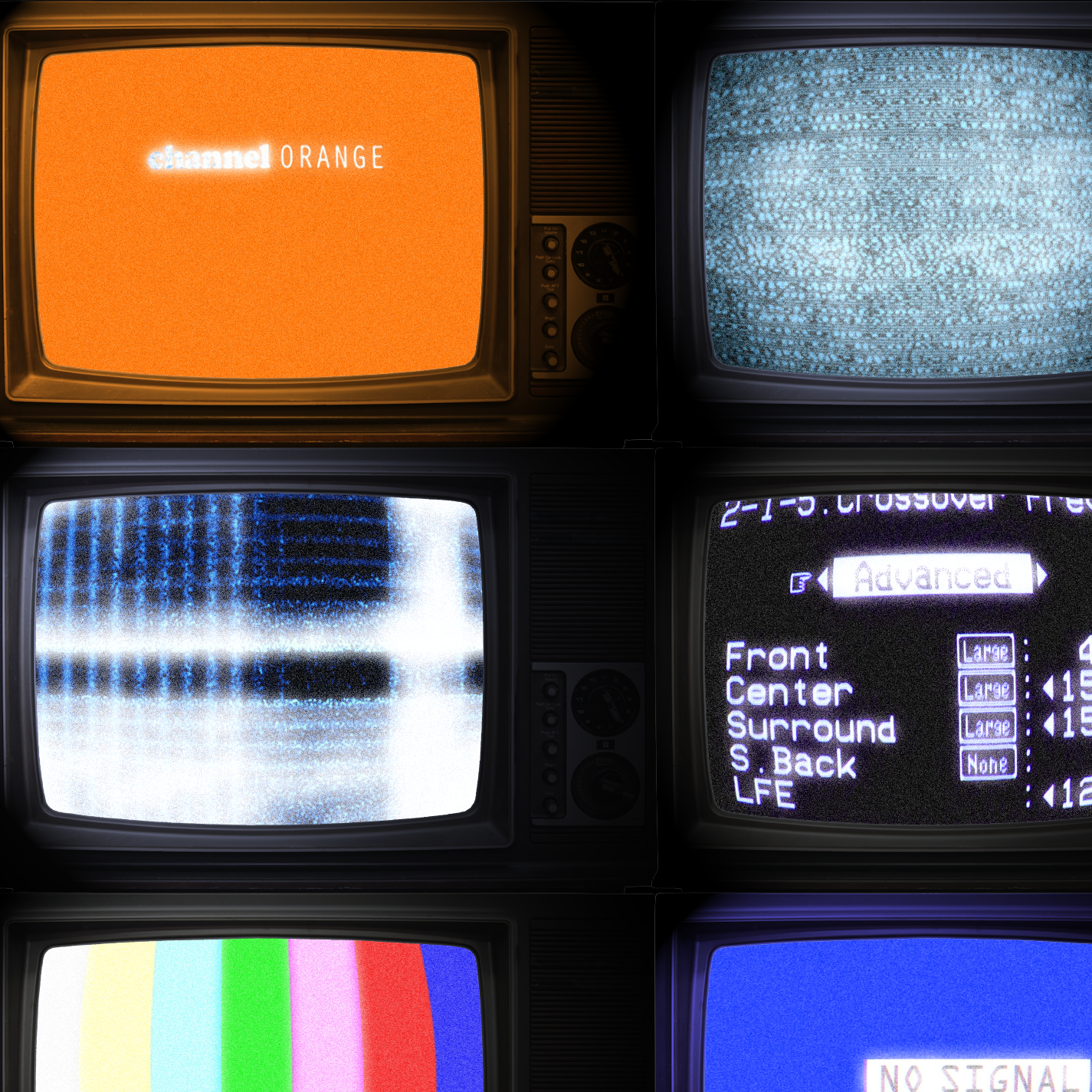
Alternate cover art, courtesy of Pinterest
Next up, the 59-second “Not Just Money“. This track is less of a song and more of a monologue, with audio of Frank’s friend’s mom scolding him. Following that we have “Super Rich Kids,” one of the most popular songs on the album (on Spotify, its the 3rd most streamed at 201,843,844).
“Super Rich Kids” depicts the teenage years of the kids of wealthy, distant parents. Earl Sweatshirt has a verse on this song, too–he and Ocean were in Odd Future together at the time of the album’s creation.
The kids in the song can’t pronounce the name of the wine they’re drinking, and they can’t find real friends (or real love). Ocean takes on the voice of these “super rich kids” and croons their plight in the bridge:
“Real love, I’m searching for a real love. Oh, real love, I’m searching for a real love. Oh, real love.”
Despite their lavish lifestyles, these kids still find themselves searching for something real. This continues the album’s theme of superficial happiness, failing to compensate for real love.

Earl Sweatshirt, artist featured on Super Rich Kids, courtesy of Billboard
“Pilot Jones” is next: a three minute, four second song about a “dealer and a stoner / with the sweetest kiss” Ocean’s ever known. Like “Sierra Leone”, this song describes a past relationship, which likely also ended badly for Ocean, considering that he opens the song with the lyrics:
“We once had things in common / Now the only thing we share is the refrigerator.”
That’s not a super significant lyric, but I had to highlight it because it’s one of my favorites. Hope you don’t mind.
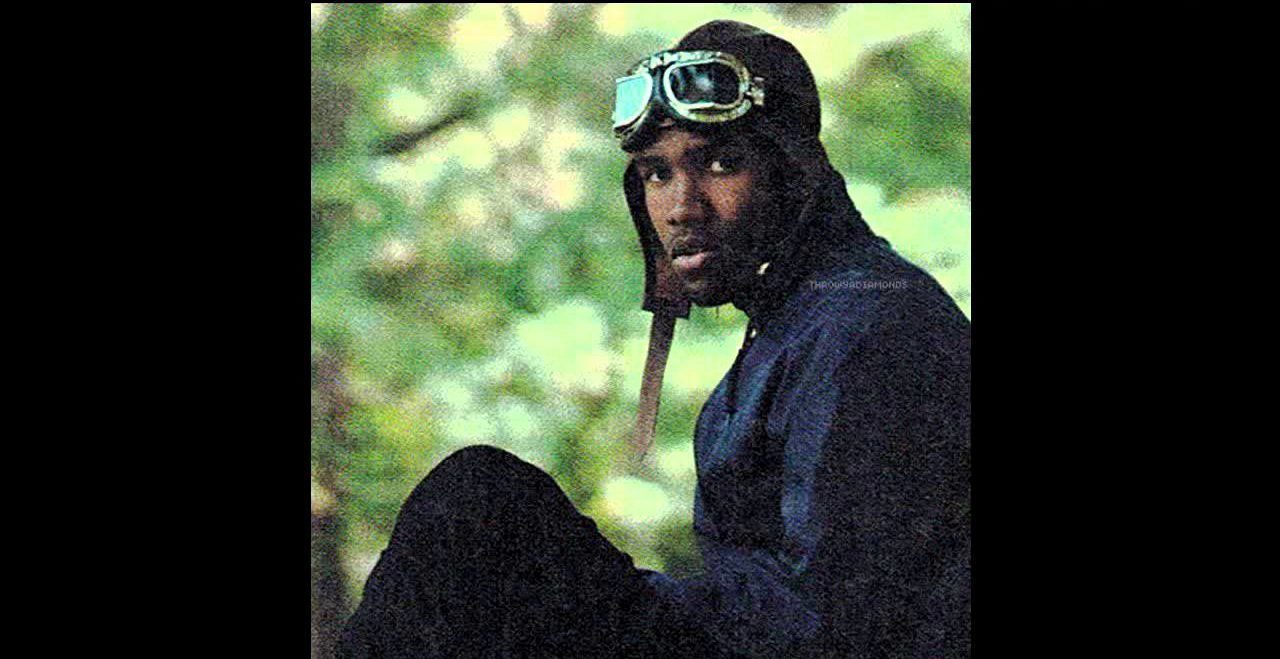
Onto the next track: “Crack Rock“. This is one of the bleakest tracks (though it doesn’t sound like it) on the album, a narrative song about a man addicted to crack cocaine. The song also discusses the “War on Drugs” and the hypocrisy of the legal system.
Ocean’s songwriting comes in handy here, and he successfully writes about these heavy topics while seamlessly blending the track in with the rest of the album.
The 10th track, “Pyramids“, follows in “Crack Rock”‘s footsteps with its serious subject matter. It traces the role of the black woman in society, from her regal status in ancient times to the degradation and hatred she now faces.
With its incredible blending of storylines and musical tones, this may be the greatest track of the album.

11th track “Lost” is a bit explicit in its content so I can’t write too much about it, but the production is great and super catchy. This song, channel ORANGE‘s fourth single, is the second most streamed on the album, second only to first single “Thinkin Bout You.”
Next come “White,” a delicate instrumental track with John Mayer listed as a featured artist. The pace picks back up with “Monks,” a song that starts to take us back into the realm of Ocean’s personal life. He sings about his experience performing, having sex with fans, and one particular woman who he tells to run:
“Run, run, run, run, you’d better run / You mean so much to me / In my world, my world.”
In order to stay with Ocean, the woman has to match the pace of his lifestyle–no easy feat considering his growing prominence as an artist.
By the last verse, we’re veering dangerously close to delusion as Ocean describes him running with his woman “lost in a jungle…a monsoon that never ends.” The growing reliance on metaphor perhaps signifies Ocean’s struggle to make sense of the relationship, which is growing more and more confusing for him.
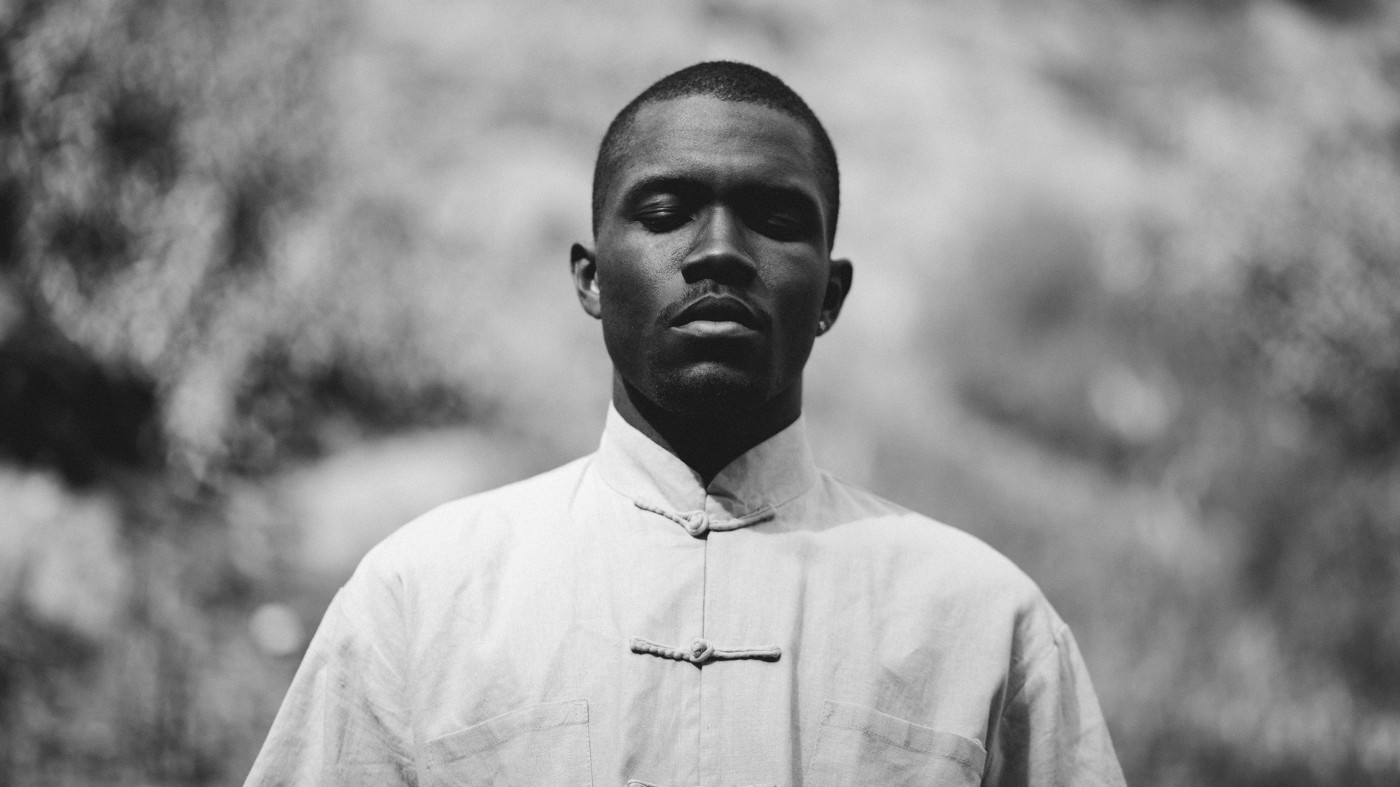
The sharp shift into metaphorical lyrics makes a lot of sense considering the following track: “Bad Religion.” This song is not good to listen to if you’re going through a breakup, first of all. But it’s beautiful musically and lyrically.
It’s only two minutes, 55 seconds, following the album’s pattern of only briefly delving into negative aspects of Ocean’s personal life (see: “Fertilizer” at 0:39, “Sierra Leone” at 2:28, and “Pilot Jones: at 3:04). This further drives home the reality of Ocean’s current mental state: he can’t fully express his own heartbreak, because that would mean accepting that he’s mature enough to experience heartbreak. As long as he can’t let go of his childhood, he’s stuck only briefly expressing his negative emotions.
15th track “Pink Matter” continues the soft, soulful tone that began with “White” and continued through “Bad Religion”. Ocean sings about missing his lover, and overall just laments for a few minutes.
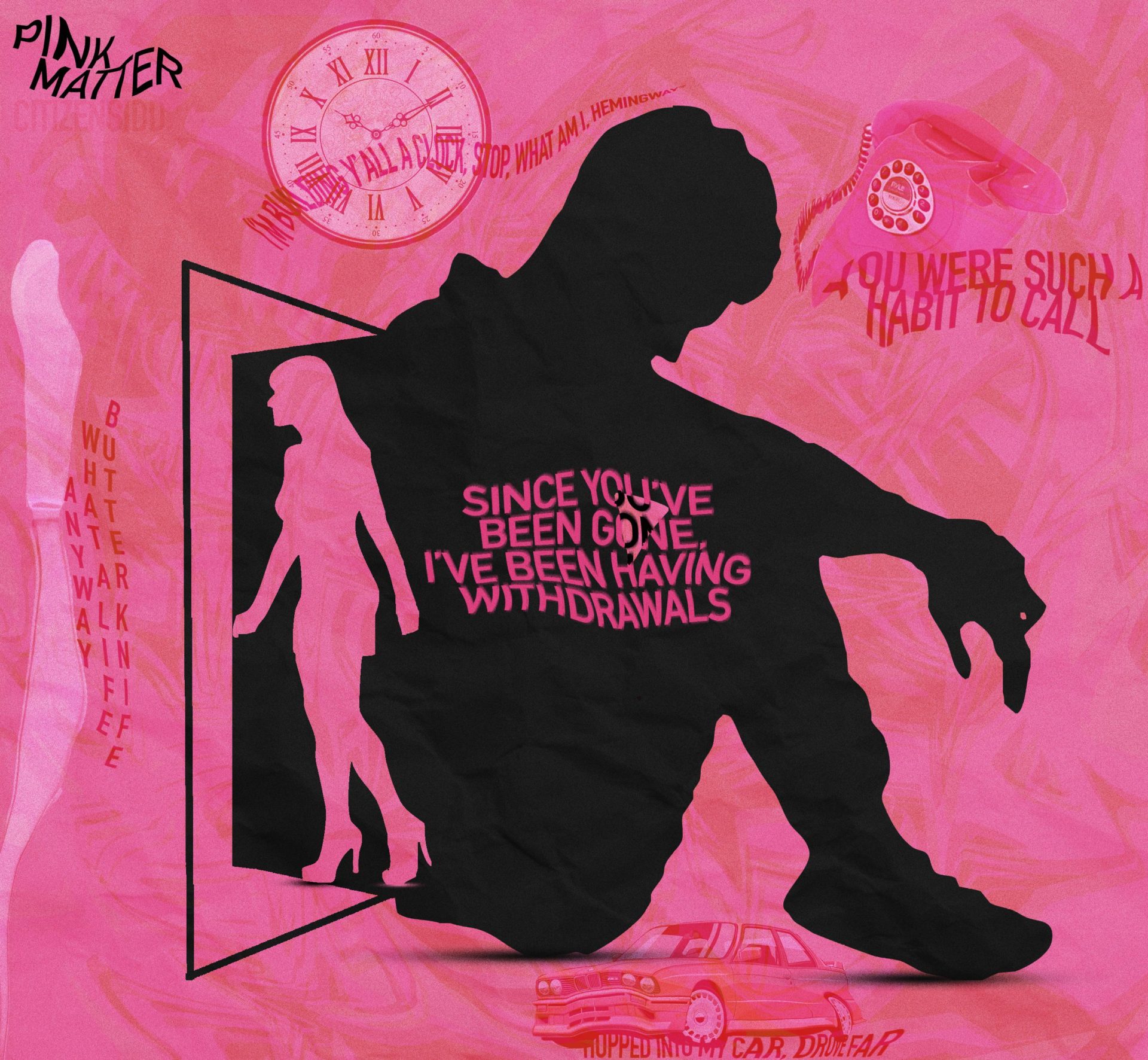
“Pink Matter” fan art, courtesy of @darththesidd on Reddit
This track is actually four minutes and 28 seconds long–a song length that Ocean hasn’t allowed any of his other personal-struggle-themed songs to reach in the album. It perhaps symbolizes Ocean’s growth through that breakup. It wouldn’t be unusual for Ocean to have hidden messages in his music, as anyone who’s listened to him before knows.
Following that comes “Forrest Gump”–a transition from Ocean talking about the previous woman to a man he was once in love with. This particular love interest was actually Ocean’s first love, who he wrote about in a now-famous (at least to Frank Ocean fans) tumblr post. He writes this song through the perspective of Jenny, Forrest’s love interest in the movie Forrest Gump.
Yet again, Ocean conceals his own feelings through metaphor–signifying that the damage his latest relationship dealt him is resulting in more deflection. Still, it’s a great song, and it seems that Ocean at least is addressing his past and its influence on him.
Finally comes “End“. A complex yet mellow track, laden with heavy lyrics, but softened by the production which layers them closely in volume with the woozy instrumentals. It’s a beautiful, somber end to a magnificent album.
And that’s channel ORANGE! I hope you enjoyed reading my take on the album, and if you haven’t yet, definitely give it a listen. You can find it on Apple Music, Spotify, YouTube, and many more streaming services. Thank you for reading and go give this amazing record a listen!


